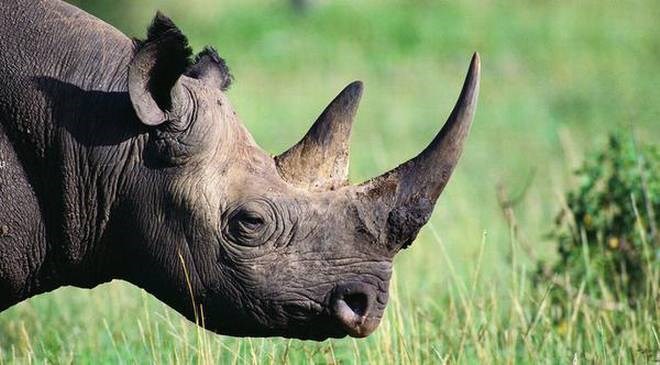The Hindu
Sunday February 26, 2017
The species has lost 70% of its genetic diversity, finds study

Genetic erosionThe black rhino which roamed much of sub Saharan Africa is now restricted to just five countries. Fuse
As the value of rhinoceros horn touches $65,000 per kg, poaching has begun to drive the African black rhinoceros to “the verge of extinction” - not just by reducing its population size, but by erasing 70% of the species’ genetic diversity - says a research paper published recently in Scientific Reports.
Genetic variation is the cornerstone of evolution, without which there can be no natural selection, and so a low genetic diversity decreases the ability of a species to survive and reproduce, explains lead author Yoshan Moodley, Professor at the Department of Zoology, University of Venda in South Africa.
Two centuries ago, the black rhinoceros – which roamed much of sub Saharan Africa – had 64 different genetic lineages; but today only 20 of these lineages remain, says the paper. The species is now restricted to five countries, South Africa, Namibia, Kenya, Zimbabwe and Tanzania. Genetically unique populations that once existed in Nigeria, Cameroon, Chad, Eritrea, Ethiopia, Somalia, Mozambique, Malawi and Angola have disappeared.
The origins of the ‘genetic erosion’ coincided with colonial rule in Africa and the popularity of big game hunting. From the second half of the 20th century, however, poaching for horns has dramatically depleted their population and genetic diversity, especially in Kenya and Tanzania.
Museum collection
For the study, scientists used genetic data obtained from existing animals and museum samples (rhinoceros parts preserved in museum collections).
The paper calls for “a complete re-evaluation of current conservation management paradigms” for the black rhinoceros. “By identifying the genetic units remaining for surviving rhinos, we are effectively defining the boundaries within which management (be it translocations to increase genetic diversity or consolidation of populations for more effective protection) can be carried out without negatively affecting the gene pool,” co-author Michael W. Bruford, Professor at Cardiff School of Biosciences, Cardiff University, U.K toldThe Hindu.
Greater the genetic diversity, the better is the population's ability to respond to pressures such as climate change and diseases, said Prof. Bruford. “Thus the loss of so much evolutionary potential in the black rhino is worrying for its future adaptability.”